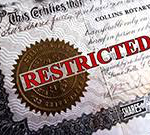Here’s good news if you own a stock portfolio. (And if you’re a reader of the Tax Reduction Letter, I’ll bet you do.) If you know how to play the game, you can turn your stock portfolio into a year-end tax-reducing machine. The basics are really pretty straightforward. Avoid the high taxes (up to 40.8%) on short-term capital gains and ordinary income.Lower the taxes to … [Read more...]
Capital Gains
Sorted by Date
Does Renting My Home for Two Months Kill the $500,000 Exclusion?
Sometimes tax rules are easy to follow. Other times, several rules interact with each other and have to be coordinated carefully to deliver the maximum tax benefit. In this issue of the Tax Reduction Letter, we’ll deal with just such an integration challenge that was ultimately successful. Read the full article for full details. Here’s an example of important … [Read more...]
Take Advantage of Partnership Special Allocations
Operating your business as a partnership can offer real advantages. This is also true for LLCs (treated as partnerships for tax purposes). Why? Because operating your business as a partnership or LLC gives you the right to make “special tax allocations” of tax items among the partners. Read the full article for details What is a special tax allocation? Partners … [Read more...]
83(b): Restricted Stock Awards and Your Taxes
Two facts about stock options you should be aware of… FACT #1: Stock options can lose most or all of their value if the underlying stock goes down in price. FACT #2: In contrast, restricted stock awards retain significant value as long as the underlying stock has appreciated. So what does the tax law have to do with these facts? Plenty. There are important federal and … [Read more...]
Know This About Employer-Issued Incentive Stock Options (ISOs)
Taking advantage of employer-issued incentive stock options (ISOs) can potentially put a lot of money in your pocket. But to come out a winner, you’ll have to make some important decisions. To make them wisely, you’ll need to understand the impact of both the regular federal income tax and the alternative minimum tax (AMT) on your ISOs. Want to find out more about this … [Read more...]


